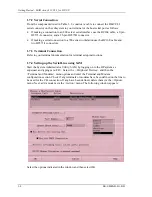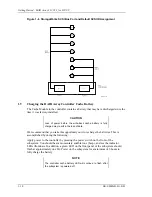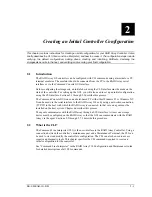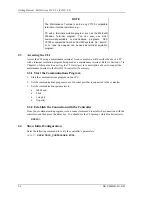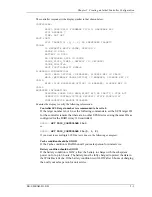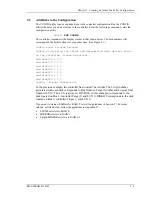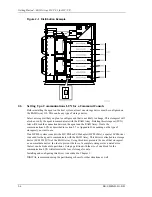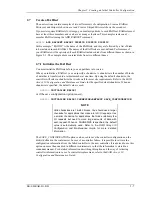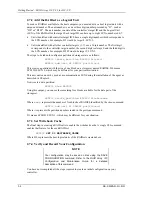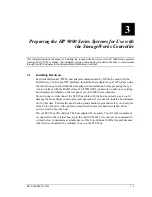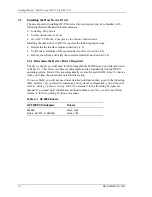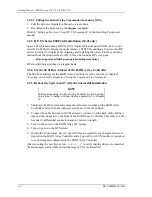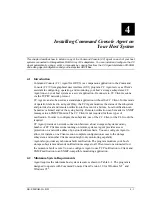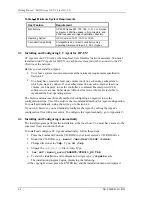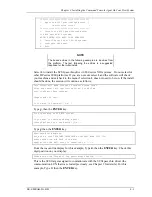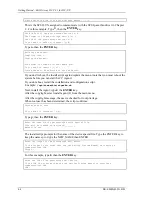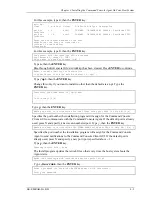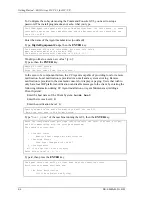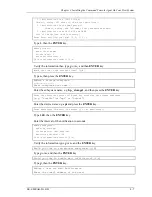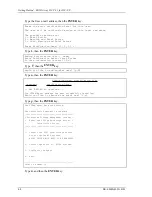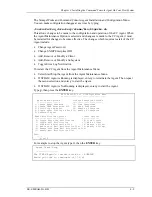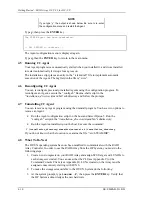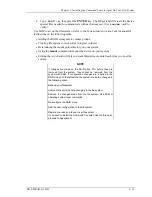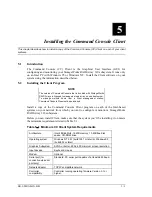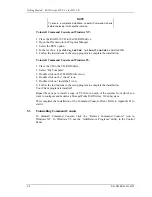
Getting Started – RAID Array 310 V3.1 for HP–UX
3–4
EK–SMRAB–IG. B01
3.2.2.2 Editing the Kernel Using Commands (if not using SAM)
1. Edit the kernel configuration file using a text editor.
2. Reconfigure the kernel using the
uxgen
command.
Refer to “Setting up Devices Using HP-UX Commands” in the Installing Peripherals
manual.
3.2.3 HP-UX Series 800 Patch Installation (10.01 only)
Series 800 systems running HP-UX 10.01 require HP kernel patch PHKL_8616 to pre-
vent the SCSI bus from hanging under intensive SCSI I/O conditions. Contact your HP
service provider for details about obtaining and installing the patch. Patches and infor-
mation about the latest patches for HP-UX can be found at HP’s web page:
http://support.mayfield.hp.com/patches/html/patches.html
HP also distributes patches on a regular basis.
3.2.4 Set the SCSI Bus Address of the RAID Array Controller
The SCSI bus address for the RAID Array Controller is set by the CLI in Chapter 2
“Creating an Initial Configuration Using the Command Line Interpreter.
3.2.5 Reboot the System and Verify the Successful Installation
NOTE
Before proceeding, the RAID Array Controller must be config-
ured. See “Creating a Communication Logical Unit” in Chapter
2.
1. Shutdown the HP system and ensure that all power switches on the RAID Array
Controller and on the host computer system are in the off position.
2. Connect the cable between the SCSI adapter’s connector on the back of the HP Sys-
tem and the connector on the front of the RAID Array Controller. This cable is a dif-
ferential to differential connection and is 3 meters in length.
3. Turn on the power to the RAID Array 450 system.
4. Turn on power to the HP System.
5. During the boot process, device “special” files are created for each logical unit con-
figured on the RAID Array Controller and a Logical Unit (LUN) number is assigned
to each storageset configured on the RAID Array Controller.
After rebooting the new kernel, run
ioscan -f
to verify that the drivers are installed,
the host adapter status is OK and all the target LUNs are identified.

